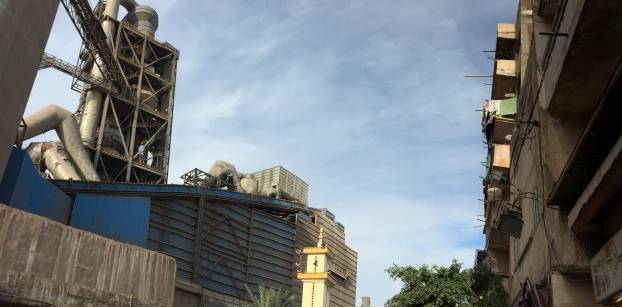Egypt's non-oil business activity shrinks for 17th month -PMI

Cement factory few metres away from residential block in Alexandria. Credit: Menan Khater
Business activity in Egypt shrank for the 17th consecutive month in February although the pace of decline slowed from a month before, a survey showed on Sunday.
The Emirates NBD Egypt Purchasing Managers' Index (PMI) for the non-oil private sector came in at 46.7 points, well below the 50 mark that separates growth from contraction but higher from 43.3 in January.
With the Egyptian pound's decline against the dollar pushing up purchasing prices, overall input costs rose in February even though labour costs fell.
New business fell for the 17th successive month, although February new orders rose to 44 points from 39.2 in January.
Output also continued to contract, though February's 44.3 reading was again an improvement from 39.3 points in January.
"While the PMI data still indicated a contraction in Egypt’s private sector in February, the headline index rose to its highest level in six months," said Tim Fox, Head of Research and Chief Economist at Emirates NBD.
"New export orders were only marginally lower than in January, signalling improving external demand, and the rate of decline in output was slower than last month.
"Inflationary pressures remain high, but the rate of input price inflation eased markedly in February."
Output prices rose for the 13th month in February, as almost one in four companies hiked their selling prices.
Egypt's annual core inflation soared to its highest level in more than a decade in January, hitting 30.86 percent, as the effects of a currency float and IMF-endorsed austerity measures ripple through an economy undergoing painful reforms.
The PMI showed employment declined for the 21st consecutive month, with the sub-index coming in at 47 points versus January's 44.8.
Companies were optimistic about the future, expecting their fortunes to improve next year.
"Overall, there are signs of stabilization in the non-oil private sector,” Fox said.
-PMI data are only available under licence from Markit and customers need to apply to Markit for a licence.









facebook comments